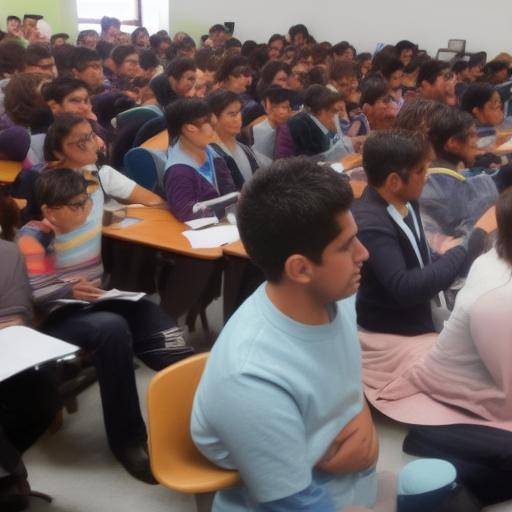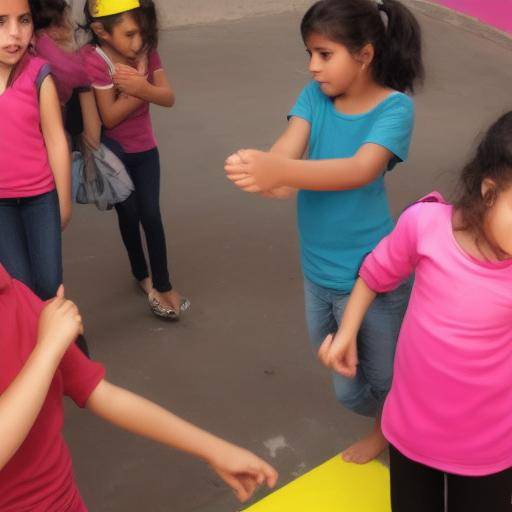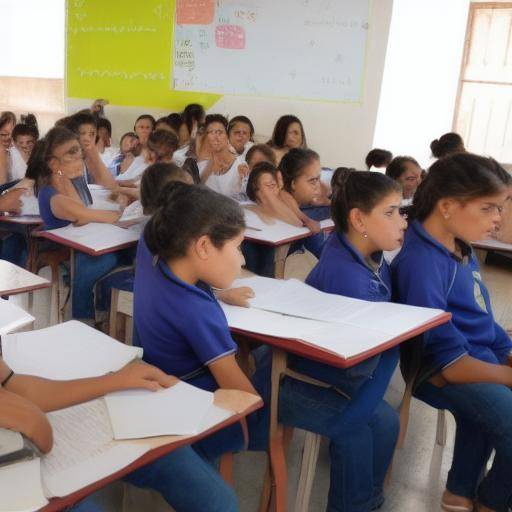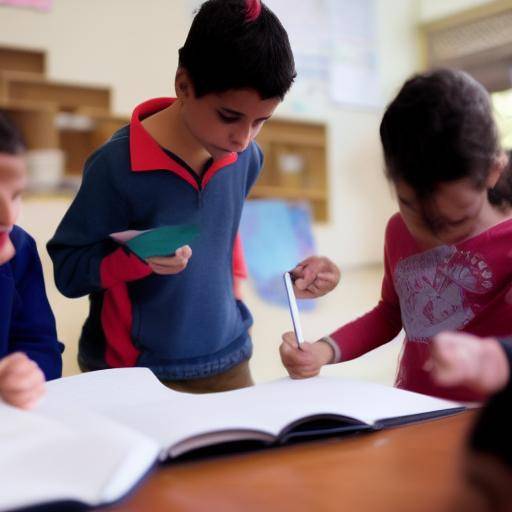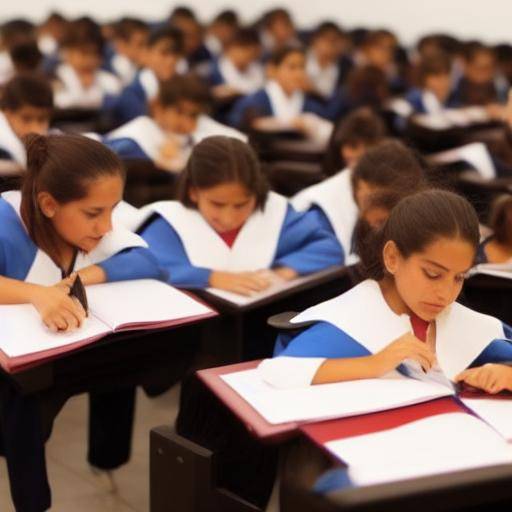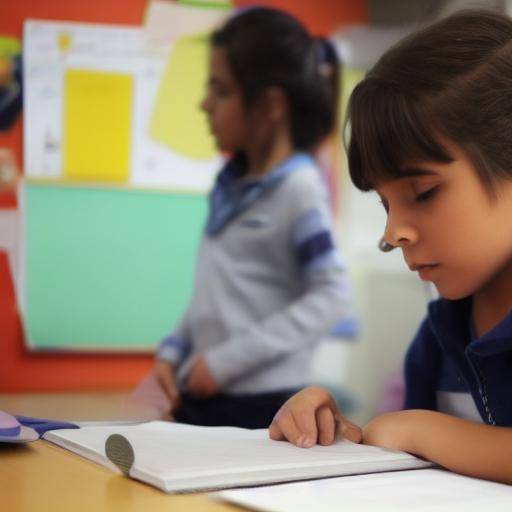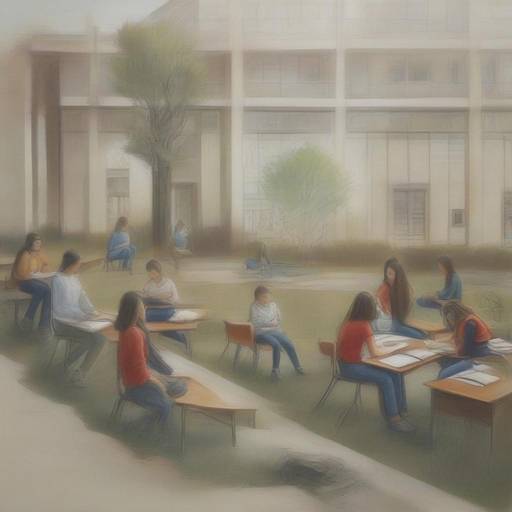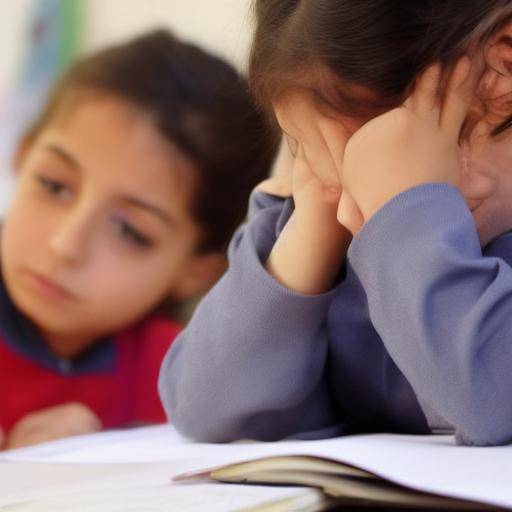
Respect, a fundamental value in any society, has a significant impact on students' academic success. From its influence on motivation and academic performance, to its role in building positive relationships in the educational environment, respect plays a crucial role in the integral development of students. In this article, we will thoroughly explore the impact of respect on academic success, from its historical origins to future trends, through detailed analysis, practical advice and case studies.
Introduction
Respect is a universal concept found at the core of human interactions. In the academic environment, respect plays an essential role in the emotional well-being, motivation and educational success of students. This article will investigate how respect impacts academic performance, classroom participation, and how it influences the creation of an enabling environment for learning. It will also provide practical advice and examples to promote respect in the educational field.
History and Background
The concept of respect has profound historical roots, dating from ancient civilizations to contemporary societies. Exploring the development and evolution of respect gives us a more complete understanding of its impact on academic success.
Respect, already present in the philosophical teachings of ancient Greece, has been fundamental in education throughout history. In Chinese culture, confucian ethics emphasized the importance of mutual respect, laying the foundations for teacher-student relationships. In modern history, civil rights movements and equality have promoted respect as the cornerstone of a just society.
The evolution of respect in the academic sphere has been marked by significant milestones, from the implementation of codes of conduct to legislation that protects the right to inclusive and respectful education.
Analysis in Deep
Respect in the educational environment has significant implications for the emotional well-being, motivation and academic performance of students. Studies show that students who feel respected tend to participate more actively in class, demonstrate greater commitment to their studies, and experience greater psychological well-being. A respectful environment also fosters positive relationships between teachers, classmates and the educational community in general, promoting an enabling environment for learning and personal growth.
Benefits of respect in academic success
- Improved student motivation and commitment.
- Increased participation in class and positive collaboration.
- Emotional well-being and strengthened self-esteem.
- Creation of an inclusive and equitable learning environment.
Current challenges and trends
While respect has proven benefits, there are challenges in its ongoing implementation in the educational environment. Cultural diversity, interpersonal conflicts and the dynamics of power can pose obstacles to cultivating a respectful environment. However, current trends indicate a movement towards educational practices that emphasize mutual respect and the assessment of diversity, using tools such as emotional education and positive coexistence programs to address these challenges.
Exhaustive examination
Explore how respect is applied in education, its effects on academic success and best practices can provide a comprehensive and comprehensive perspective on its impact.
Applications of respect in the field of education
- Implementation of policies and programmes that promote respect.
- Creating an inclusive environment that values diversity and individual differences.
- Promotion of respectful relationships between teachers, students and the educational community.
Best practices and case studies
- Establishment of codes of conduct based on mutual respect.
- Creation of activities and resources to promote empathy and intercultural understanding.
- Implementation of conflict resolution strategies that foster open dialogue and mutual understanding.
Detailed analysis of pros and cons
- Pros: Increased involvement of students, creating a safe and welcoming learning environment, promoting diversity and inclusion.
- Contracts: Challenges in constant implementation, possible interpersonal conflicts, need to address power and equity in educational relations.
Comparative analysis
Compare the impact of respect on academic success with other relevant factors in education provides an integral view of its importance and its interrelations.
Respect and academic success are intrinsically related, respect being a key factor that influences the motivation, self-esteem and emotional well-being of students, which in turn impacts positively on their academic performance. By contrasting respect with other elements, such as discipline or the school environment, its relevance is emphasized in the creation of a favourable educational environment.
Examples and scenarios
- Comparison between the impact of respect and discipline on student participation.
- Analysis of the role of respect in creating an inclusive educational environment in contrast to the influence of the school environment on academic performance.
Practical Tips and Accessible Tips
Promoting respect in the academic environment is essential to promoting an enabling environment for learning. The following are practical advice and concrete actions to promote respect in the educational field.
Advice to promote respect
- Promote active listening and empathy in the classroom.
- Implement awareness programmes on diversity and mutual respect.
- Establish standards of behaviour based on respect and tolerance.
- Providing training in conflict resolution and mediation.
Actions to create a respectful environment
- Organize intercultural activities that foster understanding and respect among students.
- Promote the participation of students in the development of respectful living standards.
- Recognize and celebrate cultural diversity through educational events and activities.
Industrial Perspectives and Expert Reviews
The perspective of experts in education and psychology provides valuable information on the importance of respect for academic success, as well as on future trends and developments.
According to Dr. López, an educational psychology expert, "Respect is a fundamental pillar in the emotional and academic development of students. Promoting a respectful environment in the classroom increases self-esteem and motivation, thus promoting better academic performance. "
Case Studies and Practical Applications
The use of actual study cases provides concrete examples of successful implementation of respect in the educational field and its impact on academic success.
The case of the "La Esperanza" primary school highlights how the implementation of a programme based on values of respect and positive coexistence has helped to improve students' academic performance and reduce interpersonal conflicts in the school environment.
Future Trends and Predictions
Respect in the educational field will continue to play a crucial role in academic success as diversity and inclusion play a central role in educational agendas. Future trends point to greater integration of practices based on mutual respect, as well as greater collaboration between the educational community and families to promote a safe and respectful learning environment for all students.
Conclusion
Respect in the educational field has a significant impact on academic success, affecting the motivation, emotional well-being and performance of students. Promoting a respectful environment in schools is crucial to promoting positive relationships, active participation and comprehensive development. By continuing to implement practices that value mutual respect and diversity, it can contribute to academic success and the overall well-being of students.
Frequently asked questions
How can teachers promote respect in the classroom?
Teachers can promote respect in the classroom by example, establishing clear expectations of respectful behaviour, and promoting activities that foster understanding and empathy among students.
What is the impact of respect on student academic performance?
Respect has a positive impact on academic performance by increasing motivation, self-esteem and active participation in the learning process.
How can challenges be addressed to foster a respectful environment in schools?
Addressing the challenges of fostering a respectful environment involves implementing awareness programmes, resolving conflicts constructively, and promoting collaboration between students, parents and teachers.
What is the role of the educational community in promoting respect in the school environment?
The educational community plays a key role in promoting policies and practices that promote respect, working with families and supporting initiatives that promote inclusion and diversity.
How can students contribute to creating a respectful school environment?
Students can contribute by creating an active commitment to mutual respect, engaging in constructive conflict resolution, and promoting inclusion and diversity.
What are the future trends in promoting respect in the field of education?
Future trends include greater integration of programmes based on mutual respect, educational approaches that value diversity, and closer collaboration between the educational community and families.
External Sources
- UNESCO: Inclusion and respect in education
- Education and values: Promotion of respect and coexistence
- The Role of Respect in Academic Performance
With this comprehensive analysis of the impact of respect on academic success, it is clear that fostering a respectful environment in the educational environment is essential for the integral development of students and their academic success. By prioritizing mutual respect and inclusion, an enriching educational environment can be created that benefits the entire educational community.













